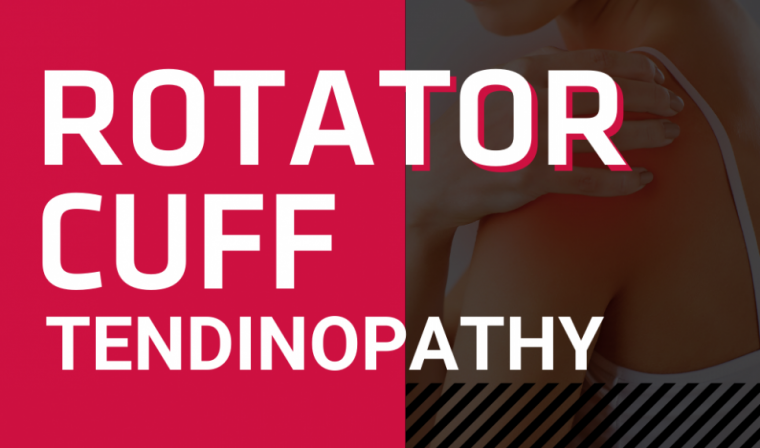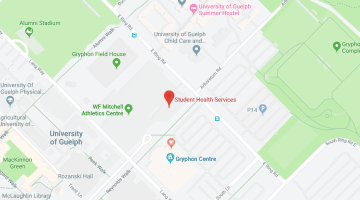

The rotator cuff muscles and tendons include supraspinatus, infraspinatus, subscapularis and teres minor. Rotator cuff tendinopathy involves injury to any of these shoulder tendons.
What Causes Rotator Cuff Tendinopathy?
The causes of rotator cuff tendinopathy can be classified as intrinsic or extrinsic. Possible extrinsic factors are internal shoulder impingement, acute traumatic events, repetitive microtrauma and compression of the rotator cuff tendon.
Postural changes, bone spurs, and muscle overuse can all contribute to compression of the rotator cuff tendons. Intrinsic factors contributing to this shoulder injury are age, genetics and poor biomechanics, which increase the load on the tendons causing injuring to them.
Signs and Symptoms of Rotator Cuff Tendinopathy
Common signs and symptoms of rotator cuff tendinopathy include:
-
Shoulder pain and weakness, especially during movements that cause rotation and elevation at the shoulder
-
Swelling and tenderness of the shoulder
-
Joint stiffness and reduced strength
-
Some individuals experience a clicking sound originating from the shoulder area when the arm is raised over the head
How is Rotator Cuff Tendinopathy Diagnosed?
Diagnosis for rotator cuff tendinopathy can often be difficult due to the lack of correlation between damage to the structures associated with the rotator cuff and the associated symptoms.
Diagnosis is usually achieved by ruling out other possible causes that the patient is experiencing. Physiotherapists diagnose rotator cuff tendinopathy by taking an in-depth history of the patient and performing different clinical tests. Supporting methods of examination, such as ultrasound and MRI can be used to strengthen the diagnosis.
Rotator Cuff Tendinopathy Treatment
Working with your Guelph Physiotherapist at HPC can be effective in reducing the shoulder pain and swelling of the tendon, as well as assist in the recovery of normal range of motion and strength in the shoulder.
For temporary relief, you can use non-steroidal anti-inflammatory drugs (NSAIDs) as well as immobilization and ice can be used for rotator cuff tendinopathy to reduce pain.
Surgical treatment is another shoulder pain management option, although evidence shows that there may not be a significant difference between surgical treatment and therapy. Physiotherapy should also be completed post-surgery during your recovery.
Tips and Tricks for Work from Home with Rotator Cuff Tendinopathy
Those working from home would benefit from maintaining proper posture to prevent shoulder joint impingement. An effective way that our physiotherapists recommend to protect the shoulder from rotator cuff tendinopathies is to incorporate strength and flexibility training into a daily routine.
Repetitive stretching and strengthening of the muscles and tendons of the rotator cuff helps to prevent injury and avoid pain by improving shoulder mechanics. This is especially important for people who are more sedentary while working from home.
If you are experiencing shoulder pain, or for more information on rotator cuff tendinopathy, book an appointment with one of our practitioners in Guelph.
*About the HPC Student Volunteer Program*
Each year, approximately 30 University of Guelph students are selected following a competitive application process to take part in the “HPC Volunteer Program.” This program provides an opportunity for U of G student volunteers to translate their academic knowledge into practice, while gaining first-hand experience and mentorship from the team of certified physiotherapists and chiropractors at the University of Guelph’s Health and Performance Centre. As a result of this exceptional partnership between the University of Guelph and the HPC practitioners, students can gain valuable insight on evidence-based practice prior to graduating from their respective programs. Click here for more information on co-curricular experiential learning opportunities at the University of Guelph [2]. This article was written by members of the 2021-22 HPC Student Volunteer Program.
References:
Factor, D., & Dale, B. (2014). Current concepts of rotator cuff tendinopathy. International journal of sports physical therapy, 9(2), 274–288.
Jain, N. B., Wilcox, R. B., 3rd, Katz, J. N., & Higgins, L. D. (2013). Clinical examination of the rotator cuff. PM & R : the journal of injury, function, and rehabilitation, 5(1), 45–56. https://doi.org/10.1016/j.pmrj.2012.08.019 [3]
Lewis J, McCreesh K, Roy JS, Ginn K. Rotator Cuff Tendinopathy: Navigating the Diagnosis-Management Conundrum. J Orthop Sports Phys Ther. 2015 Nov;45(11):923-37. doi: 10.2519/jospt.2015.5941. Epub 2015 Sep 21. PMID: 26390274.
Shin KM. Partial-thickness rotator cuff tears. Korean J Pain. 2011 Jun;24(2):69-73. doi:
10.3344/kjp.2011.24.2.69. Epub 2011 Jun 3. PMID: 21716613; PMCID: PMC3111562.
